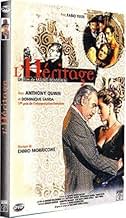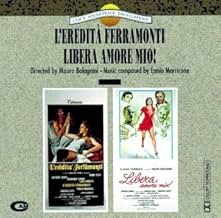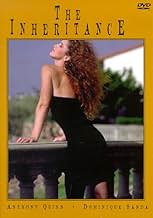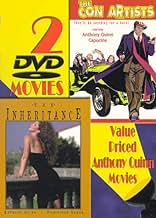This superbly shot&acted creation is,like most of Bolognini,unjustly overlooked,while it reaffirms that Italian cinema is loaded with genius besides Fellini,Visconti and Pasolini. The plot is a criticism at the savage nineteenth century capitalism,its cruelty and shallowness,placed in turn of century Rome,dealing with the ruthlessness of the Italian high bourgeoisie in their pursuit of wealth. Old Ferramonti-Anthony Quinn in yet another stunning "tour De force" of his incomparable acting-is a thrifty millionaire,which,after forty years of service,closes down the bakery which brought him wealth at the expense of overworked and underpaid workers and cheated customers. This bitter and ruthless old man is a conservative patriarch and tyrannical father and so totally Quinn:both in real life and in films like The Greek Tycoon,or the more conventional Revenge or A walk in the clouds,nothing suits Anthony Quinn best than being an unbearably rough,strong-willed and dictatorial,yet strangely charismatic "pater familiae". But Ferramonti is at such a degree authoritarian and fond of his money(which he doesn't share not even with his family,not even spends on himself,preferring to live frugally while his millions are piling up)that he negatively influenced the life of his children,now all of them grown up,yet still treated like children by him:Pippo,his most submissive son,is simply cut off from his share,tough he was the only one to work alongside with his father in the bakery and even contributed to the old man's fortune;Mario,the more wild tempered son,became a gambler living out of risky speculation at the stock exchange,enjoying a questionable short term prosperity;while Teta,the family's only daughter ran away from home and married only to escape her father's fits,her marriage to a man disliked by her father making matters only worse.The strange thing is that the old man doesn't have any paternal feelings for his children whatsoever,he is seeing them only as a potential threat,as competitors,as enemies wanting his hard-earned money. Shortly after wards Pippo marries the beautiful Irene,which like him,grew up in a wealthy yet austere environment.Irene is more ambitious than her husband and her marriage starts in a promising way,the couple's financial situation prospering and above that,she manages to reconcile the family. However one soon gets to see this woman's real face-Dominique Sanda,an iconic figure of the seventies,brilliantly mingles a flawless ingénue looks with cool,distant Garbo-style cynicism and manipulative,haunting magnetism in this part-as Irene soon shamelessly starts an affair with her brother-in-law,tough it is first unclear if due to the sexual charisma of this elegant man or just the need to acquire his protection and connections in order to succeed in the Roman high society. She even manages to enthrall the Old Ferramonti,who ends up by loving her more than his children,meticulously planning every attack which step by step takes her closer to the old man's millions(this is actually the only why she married Pippo,knowing that he will be her gateway to a fabulous fortune).Strangely at first,everybody in the family is trusting her and her contacts with the old man,thinking that she can be used as a middle man between the disinherited children and their brutal father. As it happens in love-stories where two or more brothers love the same woman,for instance Brothers Karamazov or Legends of the fall,things will take very dramatic turn,comparable to the films above,Irene managing to destroy,partly unintentional,partly purposely both Pippo and Mario,just trying to control them.Eventually her plans to keep the fortune for herself only will finally be stopped for good by her sister-in-law and her husband who end up as only heirs,ironically they weren't better than her,just "respectable mediocrities". The achievements of this film are countless:besides the good acting of Fabio Testi and Luigi Proietti as Mario and Pippo(two of Italy's most famous and talented actors),only to be overshadowed by the performances of Dominique Sanda and Quinn,who both are depicting the same kind of characters-passionate at an almost pathological scale for money and power,yet cruelly cold and calculating while pursuing their interest,the beautiful interiors of the opulent Italian bourgeoisie and the stunning soundtrack by-who else than Morricone. The only minuses might be that some sets sometimes look somewhat shabby in their nostalgic period-piece style,that gestures are too theatrically overblown and that there is a typically European,uncensored amount of-not too appealing,more destroying the film's beauty than enthralling-nudity. Nevertheless worth watching,both as trip back in visually overwhelming era and as a lesson that capitalistic greed is not necessarily a modern invention.
















